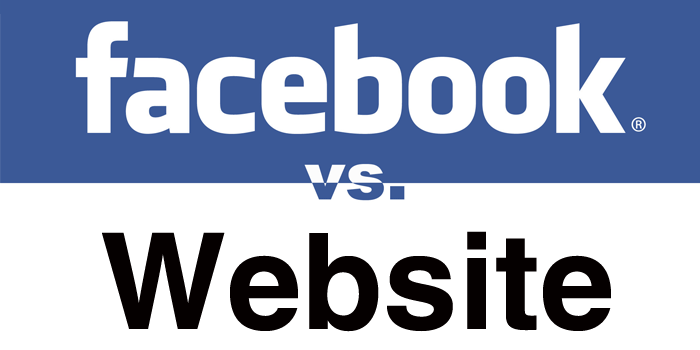Recently I spoke with a small business owner who mentioned that it would be nice to work on the company website but felt it was not very important since they have a presence on Facebook. Ultimately, it does take some work and committment to work on your business website, just like it takes work and committment to work on your business.
On the surface, it seems like a great idea to run your business on Facebook. After all, that’s where a lot of people are, a Facebook page is free, and you don’t need to have any resources put into working on a website. There is certainly a lot of value to having a Facebook presence, but here are some reasons why you might want to have a website anyway:
1. Just because someone likes your Facebook page, it doesn’t mean that they will see your updates.
Would you be surprised to know that maybe only 30% of your posts are showing up in the newsfeed of the people who like your Facebook page? Even for your personal profile, not all your updates are going to show up in your friends’ newsfeeds. Whether your updates shows up in someone’s news feed will depend on several different factors:
- How many people (and especially your friends) comment on and like stories from Pages you are a fan of
- Which Pages you visit frequently
- Which Pages you interact with frequently
In order for your posts to get more views, you will need to use Facebook Ads (aka. Boosted Post) and pay for it.
2. Facebook and social media use a different frame of mind.
When people are on Facebook, they are being social and not necessarily looking to purchase a product or solve a problem. Most of the time, when people are looking for answers to their query, they are using a search engine. Not all web presences work the same. Just as Twitter is a different animal than Facebook, a website is different than social media. Websites are more expansive and allow you to do more. On Facebook. you are giving quick updates and having conversations, but on a website, you might be presenting a more detailed information, articles, or providing a place to transact. Facebook is most useful when it is coupled with a website that allows for further exploration. People are not transacting on Facebook, even if they might click from it.
3. Websites allow people to find you via search engines.
While you can get a vanity URL by getting 25 people to like your Facebook page, you are still limiting yourself to the Facebook platform and missing out on the bigger web if you don’t have a website. You can easily buy a domain name inexpensively and set up a website on your own and allow people to find you using a search engine. Let’s face it, the more people who can find you, the better.
Think about your audience. Are how many of them Facebook? Not everyone uses Facebook all the time. Some people even avoid social media actively. Fewer people are avoiding the web. Some people use it sporadically, while some people are on everyday. It is important to have a strategy when you approach social media. It isn’t 2005 anymore and the web has evolved. You can really fumble it big on social media if you are not careful.

